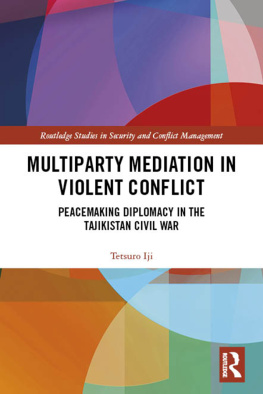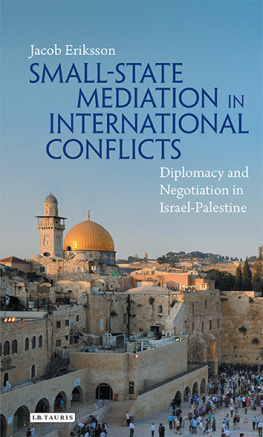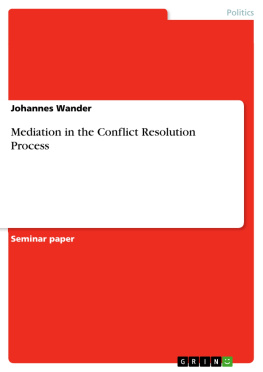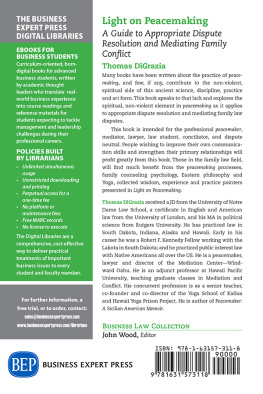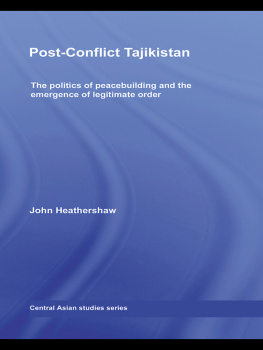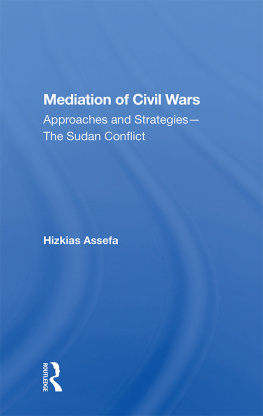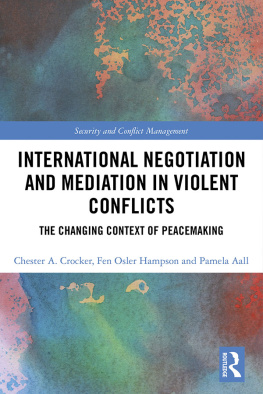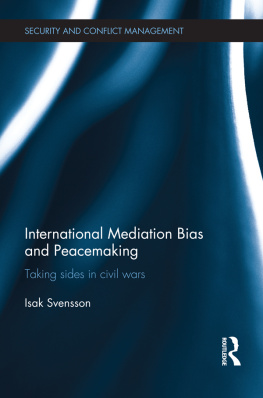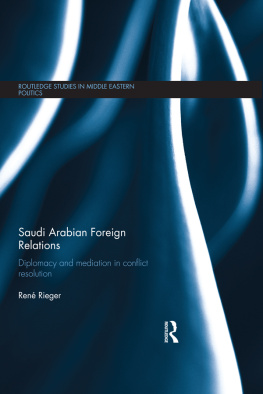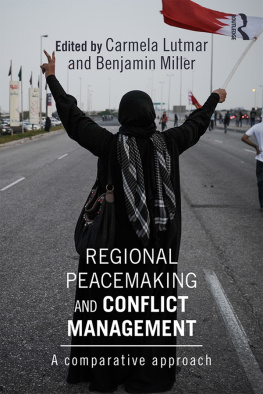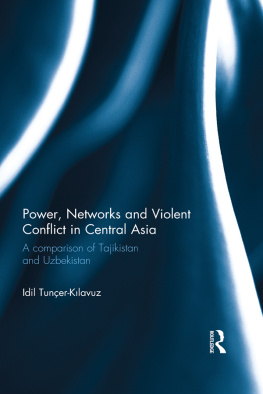Multiparty Mediation in Violent Conflict
This book presents a conceptual and empirical analysis of the UN-led multiparty mediation in the Tajikistan conflict.
Multiparty mediation has been a significant research topic of international conflict management since the 1990s, but in-depth case studies on the peacemaking dynamics of violent conflicts are rare, particularly in regard to third-party roles. This volume addresses that gap in the literature by examining the multiparty mediation of the Tajikistan conflict, a largely forgotten but notably successful case of UN-orchestrated peacemaking in the post-Cold War era. It argues that several interrelated factors contributed to the success of the Tajik multiparty mediation: Russia, Iran, and other major interveners shared a common interest, and reached a broad consensus on the terms of settlement; the UN was widely accepted as a lead coordinator by other mediators, and succeeded in constructively engaging with them; as a consequence, there arose positive interconnections between different third-party roles. The book presents an analytical framework for understanding the complex interplay of these factors, not only to evaluate the Tajik case but also to help clarify policy implications for multiparty mediation in other cases of violent conflict, particularly civil wars.
This book will be of much interest to students of conflict resolution, civil wars, international mediation, the UN, Central Asian politics, and International Relations.
Tetsuro Iji is Associate Professor at the Faculty of Global and Regional Studies, Toyo University, Japan. He holds a PhD in International Relations from the London School of Economics and Political Science (LSE). His research interest has focused on international mediation, negotiation, and conflict management.
Routledge Studies in Security and Conflict Management
Series Editors:
Fen Osler Hampson
Carleton University, Canada
Chester Crocker
Georgetown University, Washington, D.C.
Pamela Aall
United States Institute of Peace, Washington, D.C.
This series will publish the best work in the field of security studies and conflict management. In particular, it will promote leadingedge work that straddles the divides between conflict management and security studies, between academics and practitioners, and between disciplines.
Conflict Management in International Missions
A field guide
Olav Ofstad
International Multiparty Mediation and Conflict Management
Challenges of cooperation and coordination
Sinia Vukovi
Aid, Insurgencies and Conflict Transformation
When greed is good
Rob Kevlihan
Understanding Quality Peace
Peacebuilding after civil war
Edited by Madhav Joshi and Peter Wallensteen
International Negotiation and Mediation in Violent Conflicts
The changing context of peacemaking
Chester A. Crocker, Fen Osler Hampson and Pamela Aall
Conflict and Collaboration
For better or worse
Edited by Louis Kriesberg and Catherine Gerard
Multiparty Mediation in Violent Conflict
Peacemaking Diplomacy in the Tajikistan Civil War
Tetsuro Iji
For more information about this series, please visit: www.routledge.com/Routledge-Studiesin-Securityand-Conflict-Management/book-series/RSSCM
Multiparty Mediation in Violent Conflict
Peacemaking Diplomacy in the Tajikistan Civil War
Tetsuro Iji
First published 2020
by Routledge
2 Park Square, Milton Park, Abingdon, Oxon OX14 4RN
and by Routledge
52 Vanderbilt Avenue, New York, NY 10017
Routledge is an imprint of the Taylor & Francis Group, an informa business
2020 Tetsuro Iji
The right of Tetsuro Iji to be identified as author of this work has been asserted by him in accordance with sections 77 and 78 of the Copyright, Designs and Patents Act 1988.
All rights reserved. No part of this book may be reprinted or reproduced or utilized in any form or by any electronic, mechanical, or other means, now known or hereafter invented, including photocopying and recording, or in any information storage or retrieval system, without permission in writing from the publishers.
Trademark notice: Product or corporate names may be trademarks or registered trademarks, and are used only for identification and explanation without intent to infringe.
British Library Cataloguing-in-Publication Data
A catalogue record for this book is available from the British Library
Library of Congress Cataloging-in-Publication Data
A catalog record has been requested for this book
ISBN: 978-0-367-33360-7 (hbk)
ISBN: 978-0-429-31940-2 (ebk)
Typeset in Times New Roman
by Wearset Ltd, Boldon, Tyne and Wear
For May 15th, September 23rd, and October 1st
Contents
This book has its origin in the doctoral dissertation submitted to the London School of Economics and Political Science (LSE). I owe a debt of gratitude to Mark Hoffman who guided me toward its completionwith patience and pastoral carethrough the ups and downs of the research and writing. My interest in conflict resolution and international mediation began in the Conflict Management Program at the School of Advanced International Studies (SAIS) of the Johns Hopkins University, where I was fortunate to be taught by I. William Zartman. I am more than grateful to him for his guidance, encouragement, and inspirations to date. My initial exposure to the field of International Relations dates back to my undergraduate years at Sophia University in Tokyo. I would like to thank Sadako Ogata and David Wessels for introducing me to an academic discipline that eventually became my lifework.
For me, a student of concepts in conflict management and mediation, rather than that of Central Asian studies, it was challenging to investigate the complexities of the conflict and its resolution in Tajikistan. On that front, my great appreciation goes to Kamoludin Abdullaev, former Associate Professor at Russian-Tajik (Slavonic) University, and currently an independent scholar. He has been a great teacher of Tajik politics and society, an interlocutor and collaborator, and a sharp-eyed reader of the initial version of the manuscript. During rounds of fieldwork in Tajikistan, I benefited immensely from his extensive network of contacts, which enabled me to interview some of the negotiators of the 1997 peace agreement, on both the government and opposition sides. I wish to thank those Tajik policymakers and scholars who shared their experiences and thoughts with me.
In light of the books focus on the third-party process, it was also essential to probe into the policies of the international mediators involved. Special thanks to Gerd Merrem, former Special Representative of the UN Secretary-General to Tajikistan, who was so generous as to give me several days of in-depth interviews which were helpful in deepening my understanding of the UN involvement. Thanks also to Olivier Roy as a head of the OSCE mission to Tajikistan, the late Harold Saunders as a co-moderator of the Inter-Tajik Dialogue within the framework of the Dartmouth Conference, Ali Ashraf Shabestari as Iranian ambassador to Tajikistan, Grant Smith as U.S. ambassador to Tajikistan, and all other former mediators and facilitators for giving me opportunities to discuss their roles and on-site observations in interviews.


